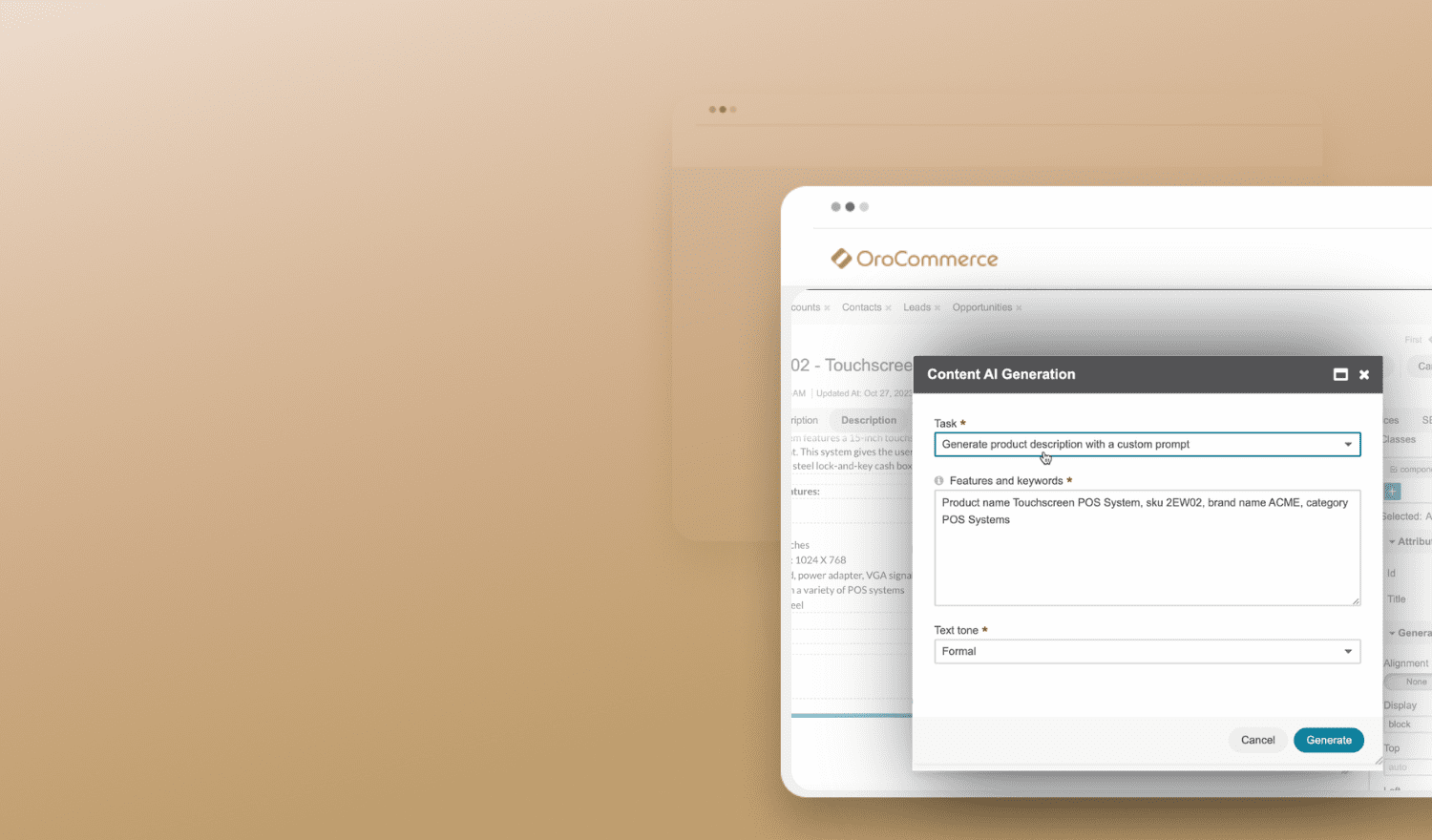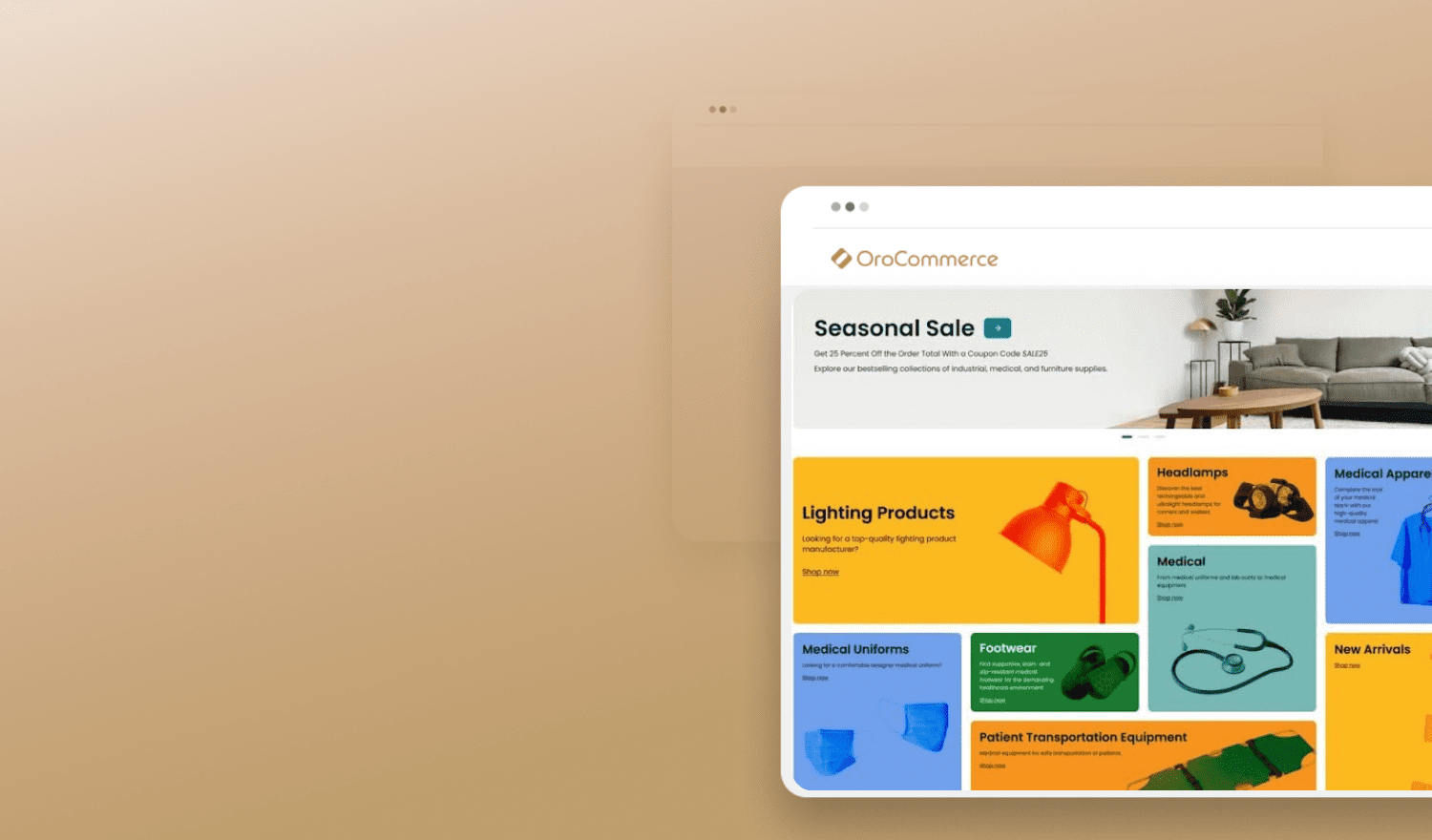When it comes to B2B eCommerce, there’s a lot of literature around taking B2C best practices and implementing them for B2B businesses. Because of this, it’s easy to see why companies are overlooking the importance of adopting an eCommerce platform specifically tailored for B2B. Vendors delivering traditional B2C eCommerce software are blurring the lines stating they have all the necessary B2B and B2C functionality required. But is it true?
When looking to setup an online store, B2B and multichannel business owners are given two platform choices: a B2C platform that contains a B2B module or a B2B eCommerce platform built from the ground up. Which platform type is best suited to help sellers structure their web shops in a meaningful way that would address the core demands of complex B2B use cases? Keep reading to find out.
Native B2B Platform vs B2B Extensions in B2C Platform
Purpose-Built vs Built for Purpose
Applications delivered from the ground up for B2B are purpose built. This is the major point that sets them apart from B2C products that have been rebuilt for the B2B purpose. Dedicated B2B eCommerce systems were born to accommodate very nuanced and complex B2B environment right from the get go. A B2C eCommerce platform with a B2B extension is only masquerading as an engine for B2B operations. Even when optimized with B2B features, its core functionality still fails to support the B2B flow.
Flexibility and Customizable Workflows
B2B businesses operate in a much more nuanced and custom fashion when compared to B2C. That’s why a B2B eCommerce solution needs to be flexible and customizable. Purpose-built solutions for B2B eCommerce have robust and flexible workflow engines that support the very specific needs of a merchant. But a highly customizable workflow engine is a core functionality that needs to be planned when architecting the platform. B2C platforms are not built with advanced workflow customizations in mind, simply because there’s no need for them, – a straightforward 5-step (or less) checkout process suffices.
For B2B, this feature is essential. For example, it is a common practice in B2B purchasing to require the approval of a superior manager in the case of an order exceeding a certain budget. To make this process smooth, one can create a customized workflow that will prevent buyers from placing an order before it has been approved. Only after a manager has approved the purchase order can the buyer proceed to the checkout. Building and customizing multiple alternative workflows in a native B2B platform would be easy whereas a B2B add-on module can only accommodate a few scenarios and limit the freedom to customize.

Example of the checkout workflow customization in OroCommerce.
Maintenance and Total Cost of Ownership (TCO)
Changes made to the B2B module’s core code may require creating different product versions or forks. Imagine that once you’ve finished customizing the most recent version of your B2C eCommerce platform to fit your B2B needs, the platform provider upgrades the software. To ensure your extension is working properly, you’ll have to thoroughly investigate all the new changes and maintain the solution accordingly. However, newer version updates may break your existing custom B2B module, and you’ll have to maintain the “fork” every time a newer version is out.
To maintain your application and regularly update it, you will also require technical expertise which may be costly. Besides, if your company is looking to scale, its business needs may change over time meaning you’ll have to leave money on the table whenever a minor code tweak or functionality change are required. In the long haul, the eCommerce TCO of a B2B module can be difficult to predict and end up being much higher than if you went with a native B2B solution.
“The majority of B2C software can’t be entirely implemented as end-to-end B2B solutions. Companies using a B2C platform for B2B web shops are forced to buy extending modules to get at least basic B2B functionality. Whenever it comes to updating these extensions, technical issues may occur.” – Thomas Michael Engelke, the CDO at Haneu Katalog in his interview for InternetWorld.de.
Customizations and Integrations
When compared to an eCommerce solution designed for B2B, B2B modules can be rigid and limited in architecture. Even if it’s possible to modify their functionality in a meaningful way, customizing built-in features will be painful and require heavy tech support. Flexible B2B solutions are much better qualified to meet these customization needs. They can easily be adapted to cater company-specific business requirements even as they change. Integrating with external, business solutions your company routinely uses (e.g. ERP, eCommerce PIM, CRM, or Accounting software) may also become an issue for platforms that use B2B modules.
A frictionless integration of a B2B module with other solutions is not always possible, if at all. Popular B2C platforms usually offer a wide range of extensions and bridges to the third party CRM and ERP solutions. But those extensions are built to only fit the B2C platform’s architecture, they are not “aware” of your B2B module and any processes it touches inside the system. All this could immensely hinder efficiency, result in poor data exchange, and reduce performance. The good news is that unlike B2B modules, dedicated full-featured B2B applications are perfectly capable of integrating and synchronizing with the third-party software.
Time to Market
To use a B2B module, vendors that don’t have an eCommerce solution first need to acquire a B2C eCommerce platform and then install the B2B module. It doesn’t make any sense for businesses trading exclusively with other businesses as they will have to deal with a redundant or limited functionality of a B2C software. Pure B2B players should first consider a B2B-focused platform which will minimize customizations and result in a faster time to market.
However, it’s a bit different for companies servicing both B2B and B2C sectors that already run a B2C site. On the surface, adding a B2B module to facilitate sales to business buyers may somewhat reduce web shop’s launch time. But, in the long run, multichannel eCommerce vendors will have to continually invest more man-hours and budget to maintain a module. It may actually make more sense to set up a B2C storefront using a B2B solution as requirements going from B2B to B2C are typically less complex.
Key Takeaways
If you are being strategic about your B2B eCommerce business, you need to choose the most reliable platform to build on. It is true that the differences between B2B and B2C customer expectations are blurring, but it does not mean that the B2B purchasing process is becoming any simpler. It’s still very fluid and has a lot of alternative paths that must be taken into consideration. Features like: advanced workflows, multiple levels of user roles and permissions, robust and complex personalization of catalogs and price lists, and request for quote functionality tied with traditional online checkout are at the core of a successful B2B eCommerce project. These capabilities must be at the core of your eCommerce platform architecture as these features touch so many system components. If you are serious about taking your B2B business online, a platform that was purpose-built for B2B offers lower TCO, faster time to market, and more flexibility to adapt to changing circumstances.



